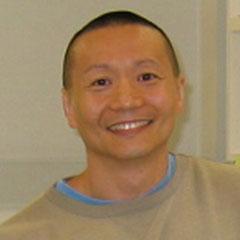About
Professor McCombe’s lab research is in the field of neuroimmunology. The lab is focused on how the immune system causes disease of the nervous system and how the immune system might contribute to recovery from damage.
The lab is focused on multiple sclerosis (MS) and motor neurone disease with an aim to slow disease progression and improve quality of life.
An overarching theme of the lab’s research is an interest in how gender and pregnancy influence diseases of the nervous system.
Biomarkers in ALS
This is a collaborative project with Dr Rob Henderson, Prof Tony Pettit and Dr Gareth Ridall looking at motor unit number estimation in ALS.
Inflammatory neuropathy
This is an ongoing study of the immunological basis of acute and chronic inflammatory neuropathy.
Pregnancy and EAE
This study will investigate the effects of pregnancy on the clinical course of EAE, an experimental disae that is a model of multiple sclerosis.
Immunology of stroke
This study involves documenting the immune responses after human stroke and determining the significance of these responses.
Energy metabolism and lipid storage in Motor Neurone Disease
Motor neurone disease (MND), also known as amyotrophic lateral sclerosis (ALS), is a devastating disease that causes progressive muscle weakness. MND leads to death within 3 to 5 years following diagnosis. There is no successful treatment and no cure for MND.
Evidence suggests that changes in energy metabolism and energy balance can significantly alter the course of disease in MND. Researchers at CCR are conducting studies to define systemic and tissue specific changes in metabolic processes that occur specific to MND. These studies are informing researchers and clinicians of pathophysiological processes that may impair the capacity of patients to maintain a stable body weight, retain muscle mass, and supply energy to tissues. It is expected that discoveries will improve clinical care, and inform strategies to develop treatments to slow disease progression and improve quality of life.
Chief investigators: Dr Frederik Steyn, Dr Shyuan Ngo, Professor Pamela McCombe, Dr Robert Henderson




